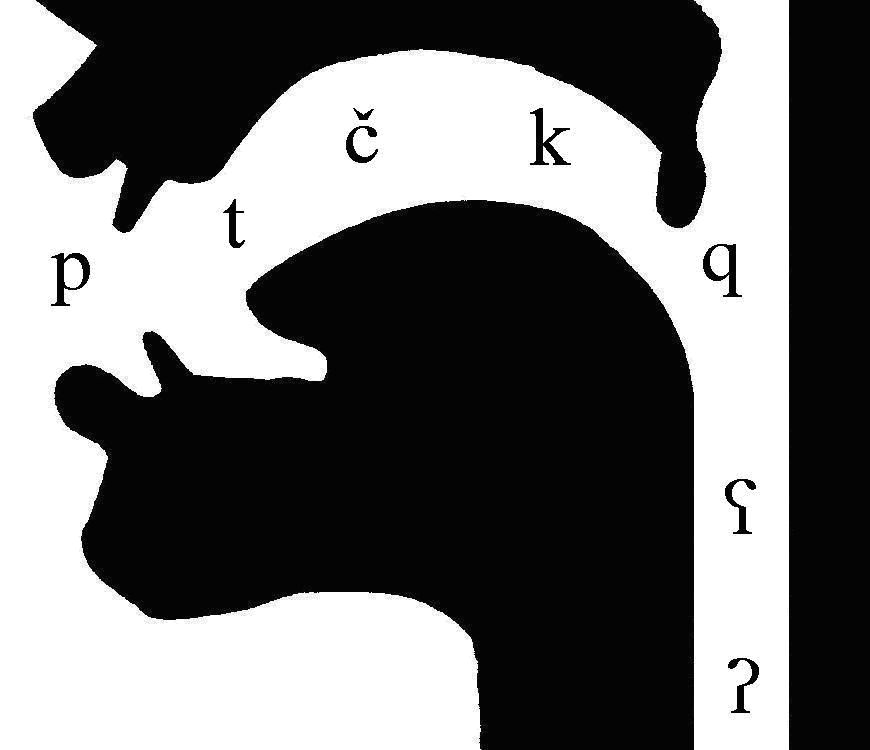Consonants
The Nuu-chah-nulth alphabet has thirty-five consonant letters. Consonant sounds are quieter and less singable than vowels.
The following table illustrates that consonants can be compared based on where they are made (lips, tongue tip, tongue back, or throat), and on how they are made (plosives, fricatives, or resonants):
| Lips | Tongue tip | Tongue back | Throat | ||||||||
|---|---|---|---|---|---|---|---|---|---|---|---|
| Plosives | p | t | ƛ | c | č | k | kʷ | q | qʷ | ||
| p̓ | t̓ | ƛ̓ | c̓ | č̓ | k̓ | k̓ʷ | ʕ | ʔ | |||
| Fricatives | ł | s | š | x | xʷ | x̣ | x̣ʷ | ḥ | h | ||
| Resonants | m | n | y | w | |||||||
| m̓ | n̓ | y̓ | w̓ | ||||||||
This diagram shows where in the mouth and throat Nuu-chah-nulth consonants are made, using p t č k q ʕ ʔ as examples:

|
The rest of the tutorial describes each consonant in turn, roughly from easiest to hardest. We will not say very much here about the differences among plosives, fricatives and resonants. However, it is important to understand the difference between hard plosives and hard resonants, and these are discussed at the end of the tutorial.
Click to continue.